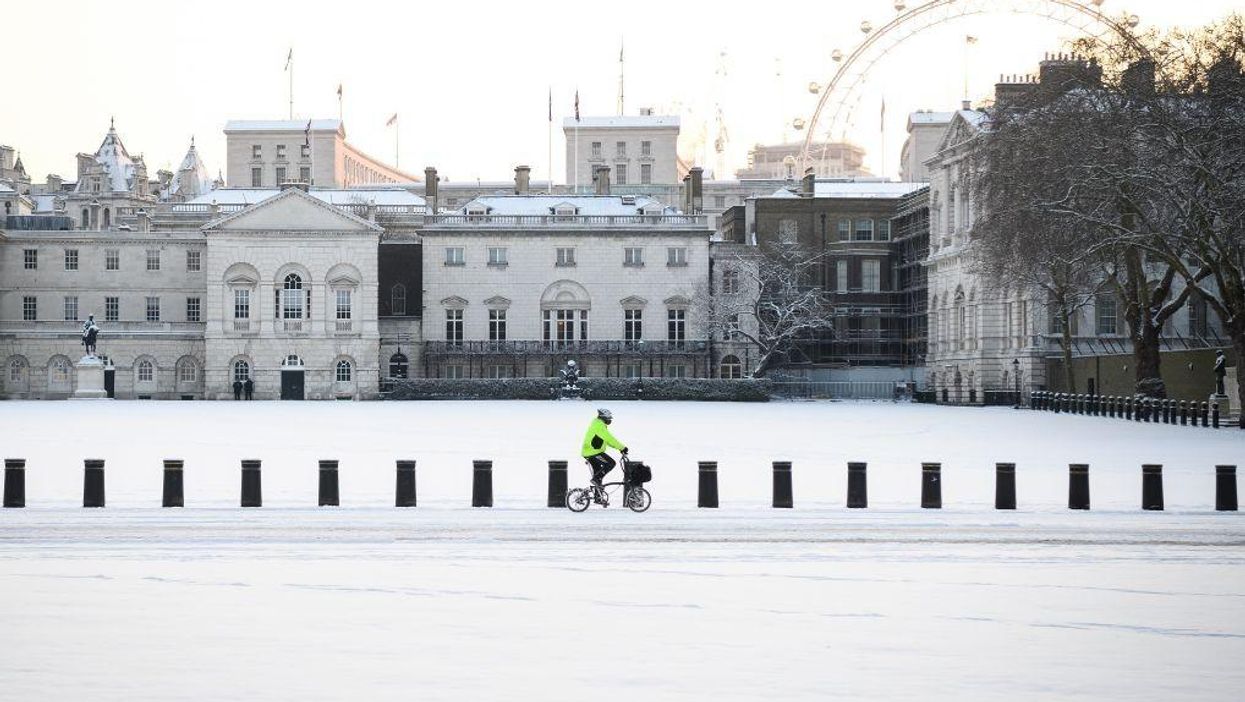News
Indy100 Staff
Feb 28, 2018

Getty Images
As people adjust to the snowy temperatures, offices and workplaces can become uncomfortable places to spend the day if it’s too cold indoors as well as out.
Can you leave work if it snows?
Not quite everyone can, but you can get time off if snowstorm Emma is bad enough to close offices.
If that happens employees will still receive pay for the time they spend home.
And, if your office is still open but your child’s school is closed due to the weather, employees legally have the right to time off, as this is considered an official emergency.
This will particularly affect Scotland, where snow has forced hundreds of schools to close and caused difficult driving conditions. Police are urging people not to travel in the amber weather warning area, which covers much of the country.
How cold is your workplace allowed to get?
There is no law outlining the maximum or minimum temperatures that an office environment should exceed, but the Health and Safety Executive states that employers are legally obliged to provide a “reasonable” temperature in the workplace, under the Workplace (Health, Safety and Welfare) Regulations 1992.
Under its Approved Code of Practice, a workplace should be at least 16C and at least 13C if a person’s work involves rigorous physical effort.
What is thermal comfort?
Thermal comfort describes the feeling of being too hot or too cold, and can be influenced by a number of factors, the Advisory, Conciliation and Arbitration Service (ACAS) states.
This includes “humidity and sources of heat in the workplace, personal factors such as clothing, and physical demands of the work”.
It is used as guidance for employers to take into account the workplace and environmental factors that contribute to people’s comfort at work.
It is not measured by room temperature, but “by the number of employees complaining of thermal comfort”, according to the Health and Safety Executive.
What effects can thermal discomfort have on you?
Employers who managed their employees’ thermal comfort are “likely to improve morale and productivity”, the executive states, while overly hot or cold environments can reduce employees' ability to make decisions and perform manual tasks to deteriorate.
What can you do if your workplace is too hot or cold?
The guidance from ACAS is that employees should raise any temperature issues with their boss or HR department.
“Nobody wants to be freezing cold in the office but there are some workplaces where cold working environments are a necessity such as workers that have to handle frozen food in freezers as part of their jobs,” a spokesperson said, referring to the guidance set out by the Health and Safety Executive.
Good luck and stay warm.
Additional reporting: Chelsea Richter, Loulla-Mae Eleftheriou-Smith, PA
More: Think UK weather forecast is bad? Check out 13 stunning pictures from the coldest village on Earth
Top 100
The Conversation (0)












